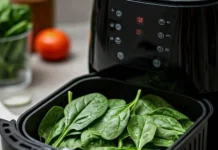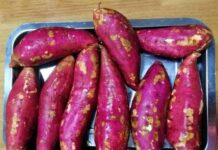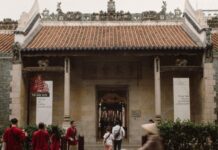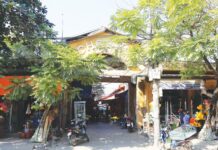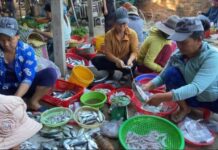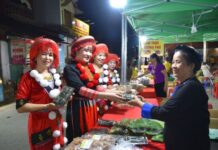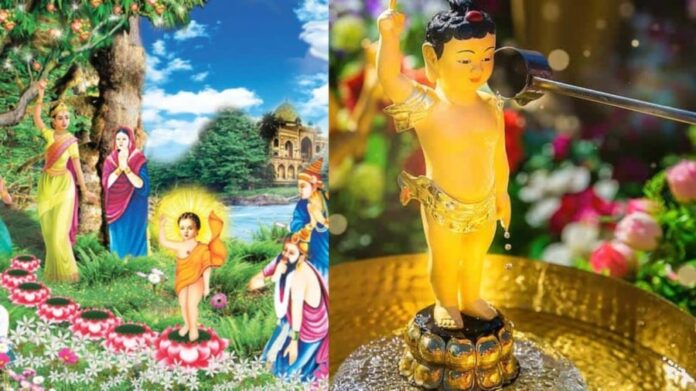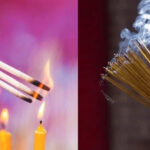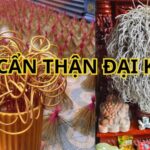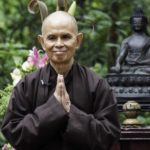Vesak, or Buddha’s Birthday, is one of the most significant holidays in Buddhism, commemorating the birth of Gautama Buddha. This occasion often sees Buddhists and laypeople alike flock to temples to pay homage to the Buddha, recite sutras, perform spiritual rituals, and practice charitable acts. However, some people are unsure about the appropriateness of certain practices during Vesak, such as burning incense, offering gold ingots, and making alcohol offerings. Are these acts in line with Buddhist teachings?
The Significance of Vesak
Vesak usually falls in the first half of the fourth lunar month, typically celebrated from the 1st to the 15th of April. This occasion is not only a time to remember and honor Gautama Buddha but also a chance for Buddhists to practice compassion, wisdom, and detachment from greed, hatred, and delusion, as taught by the Buddha. It is a time for sowing good karma, upholding precepts, and nurturing a pure spiritual life.
Buddhist teachings emphasize mindfulness and focusing on true, good, and beautiful values rather than external rituals. Thus, any actions undertaken during Vesak should stem from sincerity, proper understanding, and righteous cultivation.
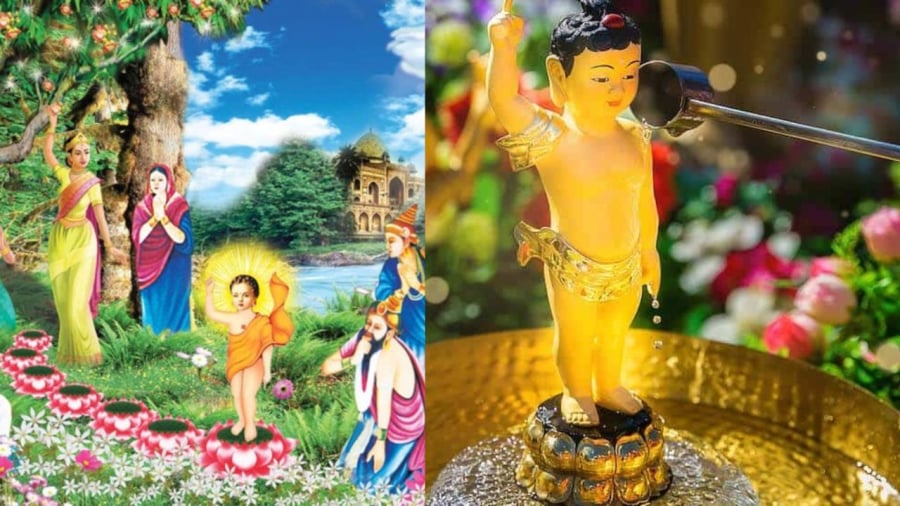
Burning Incense During Vesak
Incense burning is a common ritual in Buddhist ceremonies and Vietnamese folk religion. However, the true meaning of incense burning lies not in the quantity of incense sticks or the fragrance that fills the air, but in the sincerity and devotion of the worshipper.
During Vesak, burning a single stick of incense symbolizes offering our reverence to the Buddha and our aspiration to follow his path of virtue, leading to self-transformation. When burning incense, it is important to use a moderate amount and avoid chemically-treated incense that may release harmful substances into the environment.
Gold Ingot Offerings during Vesak
Burning paper money or gold ingots is a common practice in Vietnamese folk religion, often done with the intention of sending financial offerings to the deceased. However, in Buddhism, this practice is not encouraged. The Buddhist Sangha has repeatedly advised against the worship of paper money and gold ingots.
Furthermore, burning gold ingots and paper money can increase the risk of fire hazards and cause wastefulness and environmental pollution due to the use of dyes and burning materials.
Buddha’s teachings emphasize that all beings are subject to karma. Acts such as burning gold ingots do not bring liberation or alter one’s karma. True liberation comes from cultivating one’s mind, performing good deeds, reciting sutras, and dedicating merit to the deceased and oneself.
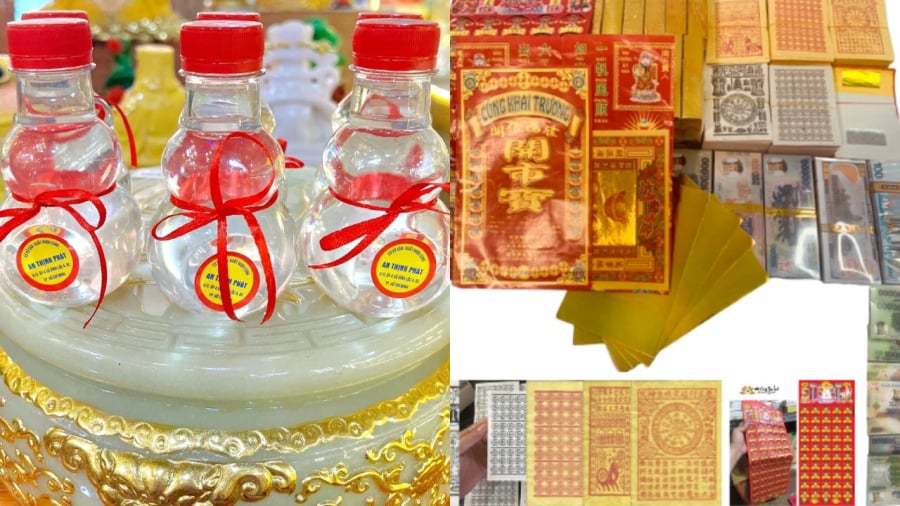
Especially on a sacred day like Vesak, burning gold ingots goes against the spirit of simplicity and purity in Buddhism, causing environmental pollution and wasteful spending.
Therefore, if your family worships the Buddha, it is advisable to follow the Buddhist Sangha’s recommendations for offerings. If you have a family ancestor altar, you may offer paper money and burn gold ingots, but refrain from excessive offerings. If you wish to dedicate merit to your ancestors in accordance with Buddhist principles, avoid using paper money and gold ingots.
Alcohol Offerings during Vesak
Buddhism teaches the Five Precepts, the fifth of which is abstaining from alcohol and other intoxicants. Alcohol is considered a substance that can easily lead to loss of control, impaired wisdom, and wrongful actions. Therefore, offering alcohol during Vesak is entirely inappropriate.
The Buddha himself did not consume alcohol, and Buddhist monks and nuns also abstain from it. Offering alcohol as part of the ritual is a folk custom and not a part of Buddhist ceremonial practices. To express sincerity, one can offer clean water, fragrant tea, or fresh fruit – offerings that symbolize purity, gentleness, and enlightenment.
Thus, whether at home or in a temple, alcohol should not be offered to the Buddha. If there is a separate family ancestor altar, alcohol can be placed there but not on the Buddhist altar. If one wishes to dedicate merit to the ancestors in accordance with Buddhist principles, alcohol is not necessary on the ancestor altar.
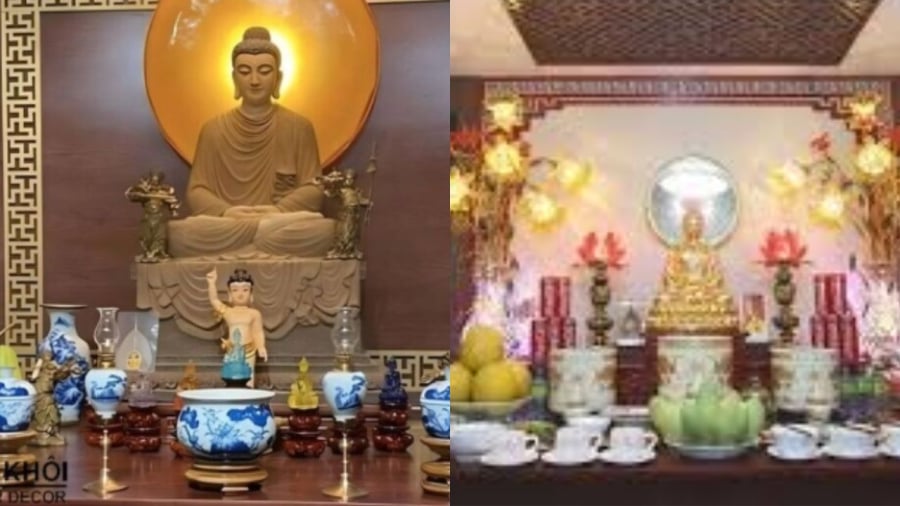
Recommended Practices during Vesak to Accumulate Merit and Increase Blessings
Instead of focusing on external forms such as offering paper money, burning gold ingots, or offering alcohol, one can engage in more meaningful practices in line with the Buddha’s teachings to increase blessings:
– Reciting sutras and chanting Buddha’s name at home or in the temple to cultivate mindfulness.
– Performing compassionate acts of releasing captive animals, ensuring that the animals are truly freed and not subjected to further suffering.
– Engaging in charitable acts and helping those in need.
– Upholding moral precepts by refraining from killing, stealing, lying, sexual misconduct, and consuming intoxicants.
– Participating in the ritual of bathing the Buddha, symbolizing the purification of one’s soul and the journey towards enlightenment.
Vesak is an opportunity for Buddhists to reconnect with their spiritual roots, slow down, reflect, and cultivate themselves. It is a reminder to cultivate a Buddha-like mind. Accumulating merit is not just about special occasions like Vesak but about practicing the Buddha’s teachings daily. Let this sacred Vesak holiday be a moment of awakening, nurturing compassion and peace, and striving for a happier, more fulfilling life.











